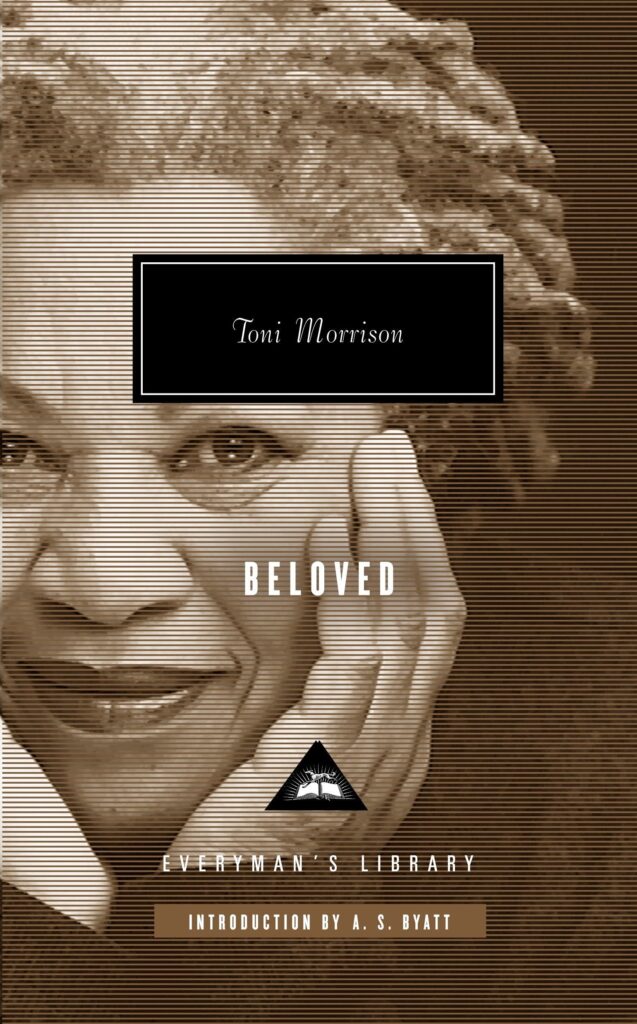Tuesday
I’ve written a couple of times about Glenn Youngkin’s attack on Beloved (here and here), which may have helped him win the Virginia governorship, but I want to make one final point. Because Toni Morrison’s novel is in fact social dynamite, it makes sense that those “tap-dancing” with white supremacy (that’s the phrasing of MSNBC’s Jonathan Capehart) would be disturbed when their children are assigned it.
But at least those parents acknowledge that stories are powerful. I saw historian Michael Beschloss the other night on MSNBC observe that the incident is overblown because Beloved is only fiction. In saying so, he underestimates the disruptive potential of novels. Indeed, Beloved is meant to disturb readers, Black as well as White. Great literature is often great because it disturbs.
As I reflect on this, an interchange from the Lawrence Kasdan film Grand Canyon (1991) comes to mind, one that I mention in my book. Danny Glover, in the role of auto mechanic, is confronted by a gun-wielding gang leader while attempting to help stranded motorist Kevin Kline. Asked by the man whether he respects him or not, Glover replies, “You ain’t got the gun, we ain’t having this conversation.” One reason why schools are having conversations about Beloved (and why certain schools have also banned Morrison’s Bluest Eye and Song of Solomon) is because Morrison’s fiction is like a loaded gun that could go off at any moment, shattering complacency.
This is a point made by a recent Washington Post column, written before the Virginia election. After reading about the boy—now a Republican operative—who “gave up” on the novel because it was “gross” and hard to handle, African American columnist Cristine Emba recalls her own high school encounter with it:
I was also asked to read Beloved in a high school English class, also in Virginia — Richmond, to be precise. It was a hard read. You felt bad. It was also an illuminating corrective, studied against the Virginia backdrop of Robert E. Lee worship, Stonewall Jackson fetishization, and the plantations where enslaved people, we heard in our history classes, worked mostly happily for noble, caring masters.
Beloved in her case proved to be life-changing:
The novel taught me the power of literature, how words could transmit deep emotion. It did keep me up at night, because I was grappling with the pain of another person, wondering how someone could get to such a place, how people could do these things to one another. The gory details of the book fled my mind in the ensuing years. But the feeling — I never forgot it.
Rightwing Americans, Emba says, fear facing up to the past into which Morrison plunges them. And she does so in ways they never forget:
They fear it because examining our racial history, engaging in empathy for the enslaved and their descendants, might occasion a bit of guilt, a bit of knowledge that our national mythology (and its embedded racial hierarchy) is false, and a bit of responsibility to address racial inequality. It might occasion a bit of change, in short — and we can’t have that.
Youngkin’s promise to Virginiains, in other words, was “Elect me and your kids will never be forced to confront uncomfortable issues”:
In Virginia, all of this hides under a dad-like candidate in a fleecy vest, and in the beseeching eyes of a suburban mom protecting her little boy from books that made lawmakers turn “bright red with embarrassment.” But it is obvious from the segregationist history of “parents’ rights” discourse — and in the particular parts of curriculums most frequently opposed — what the real agenda is.
The problem with avoiding fearful issues is that we don’t so much escape them as push them under, which in turn renders them toxic. Facing up to them is how to break their hold over us, and doing so through novels is one of the most powerful means we have for doing so.
